

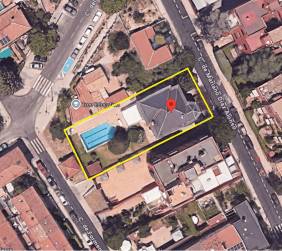

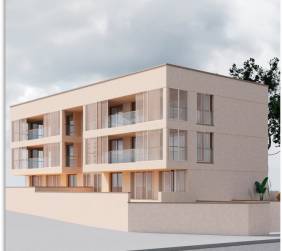
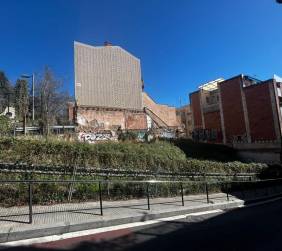
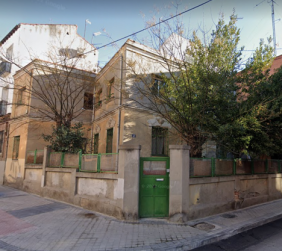
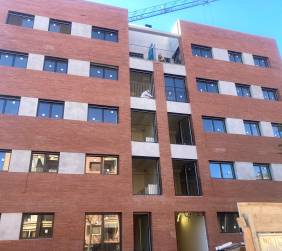

The rise in interest rates in Israel led to an increase in mortgages and loans, which led to a stagnation in the real estate industry.
While young couples and home buyers for their own use are forced to decide between buying properties through expensive financing and waiting for the impact of the high interest rate environment on property costs, experienced investors understand that waiting and uncertainty are not a promising economic strategy, and are looking for real estate investment opportunities outside the geographical borders of the State of Israel.
The real estate market in Israel has shown growth over the past decade, and at times has even been accused of the bursting of a bubble – an economic concept describing a disconnect between the price of a product and its benefit. Government policy that strove to lower real estate prices, with the aim of providing the public with affordable housing, led to an increase in tax costs applicable to real estate investors in Israel, an increase in the interest rate, and a reduction in the volume of mortgages granted to the public, and as a result to an increase in risk and a decrease in projected returns for investors.
As a result, the choice of real estate investments abroad is understandable in addition, of course, to the advantages and opportunities offered by the global real estate market:
• Tax benefits given to investors in various countries around the world in order to encourage the entry of foreign money into the country.
• Taking advantage of price declines as a result of economic crises that occurred and their impact: for example, the subprime crisis and the COVID-19 crisis, which led to a decline in real estate prices worldwide.
• The impact of wars and security and political situations on the housing market in Europe that create
A variety of investment options without geographical limitation.
• Access to information and the possibility of managing most of the process through digital means and without the obligation of physical presence.
• The strengthening of the shekel over the years against the European euro and the US dollar.
Spain is only a 5-hour flight from Israel, connects comfortable Mediterranean weather with breathtaking European landscapes, is a member of the European Union, which is a global trade and economic powerhouse, and is ranked second in the world as a leading tourist destination, due to the volume of tourists visiting from Israel and the world every year.
The plunge in real estate prices in Spain as a result of local and international crises, along with a slow but steady recovery and growth, have made Spain an intriguing destination with potential for real estate investments in Spain by Israeli investors, who are looking for low-risk investment opportunities and promising returns.
Spain was among the countries that suffered a real blow during the subprime crisis, when alongside a sharp decline in demand for real estate properties among locals who did not meet the toughening of the conditions of Spanish banks for obtaining financing and mortgages, it also experienced an abandonment of investors, and a substantial increase in the unemployment rate.
Property prices, which plummeted in the range of 40%-70% on average, along with the plunge in shares of leading companies in the economy and the huge national debt of the country, gave Spain the severe economic crisis it knew, which lasted for 5 years, and of course this did not help bring back investors who feared a collapse of the Spanish economy. Commitment to government austerity, belt tightening, EU support and government policies that pushed for growth have brought Spain to the beginning of recovery, growth and a resurgence of real estate prices, which have not yet reached their predicted ceiling, attracting many foreign investors.
Data and figures:
Spain is home to nearly 50 million people and has a total area of 505,370 km².
Spain has been a member of the European Union since 1992, one of the first countries to join the EU in its current form, and enjoys its economic power and the safety net provided by the EU to its member states.
Spain’s economy is stable, ranked 14th in the world and 5th among European countries.
Growth figures in Spain stand at an average of 4.5% growth per year.
Spain’s economy relies on a number of prominent industries, including the steel industry, quarries, shipyards, textiles and of course extensive tourism, which is creating a boom in commerce, hospitality, restaurants, leisure and many more.
Apart from the extensive general tourism, Spain also stands out in a unique tourism channel: sports tourism, and boasts a sports culture and local teams that stand out in the European leagues and international leagues in football and basketball.
Past influences along with contemporary characteristics make Spain a prominent and popular destination among investors.
1. The number of building starts in Spain over the years was particularly low and even stagnated during the years of crises known to the country, which created high supply and demand gaps in the housing industry.
2. The high volume of building starts approved in 2022-2023 has led contractors and developers in the country to commit to high-scope construction at rapid intervals, forcing them to raise liquid capital for construction purposes by selling assets on paper at low costs relative to the real value of the assets.
3. Rental costs in Spain are high, and rental prices are not regulated, which creates opportunities for income-producing real estate that is lucrative for investors.
4. The mild and warm weather in Spain makes the country a tourist destination that is not based solely on the spring and summer months, and Spain enjoys flourishing tourism throughout the year, which increases the yielding potential among investors in vacation apartments and commercial properties.
5. The Spanish government encourages foreign income through a lenient tax policy for foreign investors.
6. Spanish banks have a policy that allows mortgages to be distributed to foreign investors amounting to 80% of the value of the property, which allows these investors a low entry threshold.
Common types of real estate investments in Spain
Apartments for long-term rent– Purchase of apartments in the vicinity of major cities in Spain, in new buildings and in projects of developers engaged in the demolition of old buildings and their reconstruction to high standards of construction and design. These apartments are in demand among the affluent local population, European businessmen who want a central address and a residential solution for their many business visits to Spain, and carry a high yield alongside low maintenance costs.
Apartments for short-term rental– Investing in apartments in Spain’s metropolitan and tourist cities, for the purpose of renting the property for short periods and for rotating tourists. These apartments are managed by local companies that take care of the maintenance and rental of the property, in return for management fees derived as a percentage of income, while short-term rental costs are considered high relative to rental for residential purposes, peaking during the hot tourist seasons.
Commercial properties- Investment in commercial industrial buildings in high-demand areas, purchase of offices, shops, entertainment complexes and others, offered for rent to business owners in Spain, characterized by high rental costs, long-term leases and low turnover, and maintenance and management through the management companies of the entire building / business complex.
 B.S.R Tower 3, Metsada 9, Bnei Brak
B.S.R Tower 3, Metsada 9, Bnei Brak
 Sunday-Thursday 09:00-18:00
Sunday-Thursday 09:00-18:00